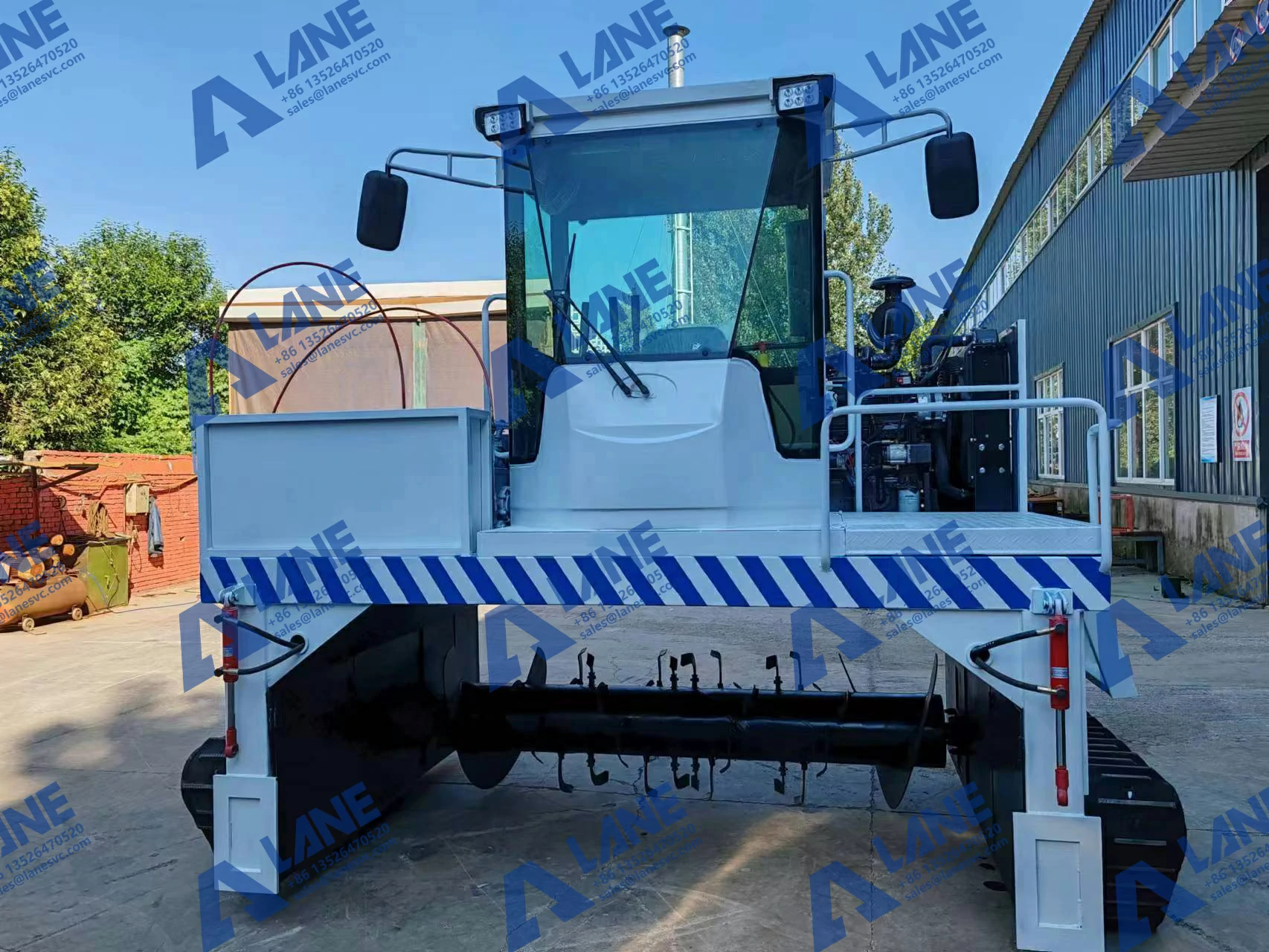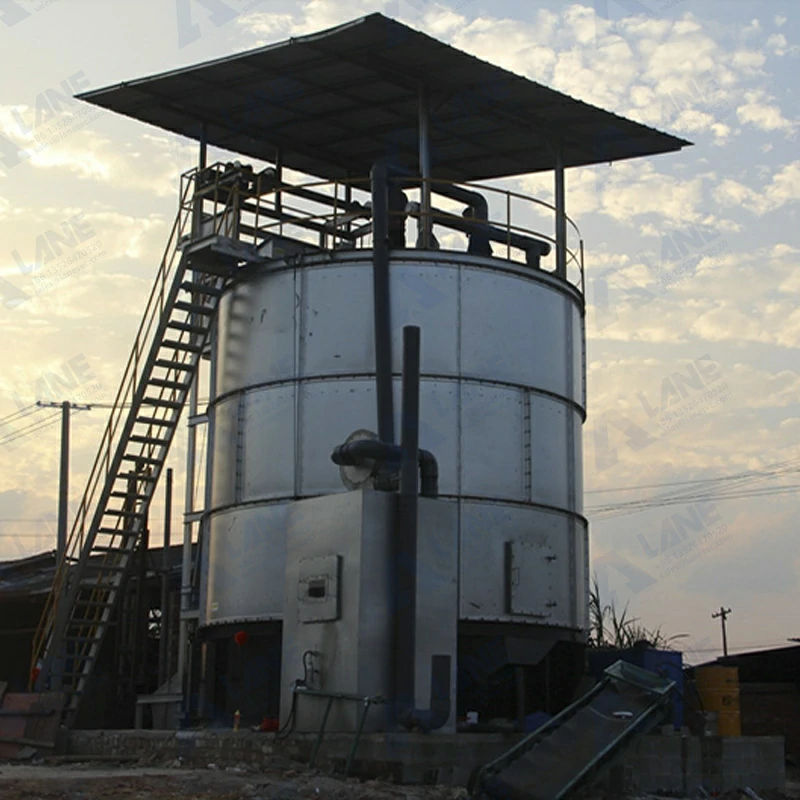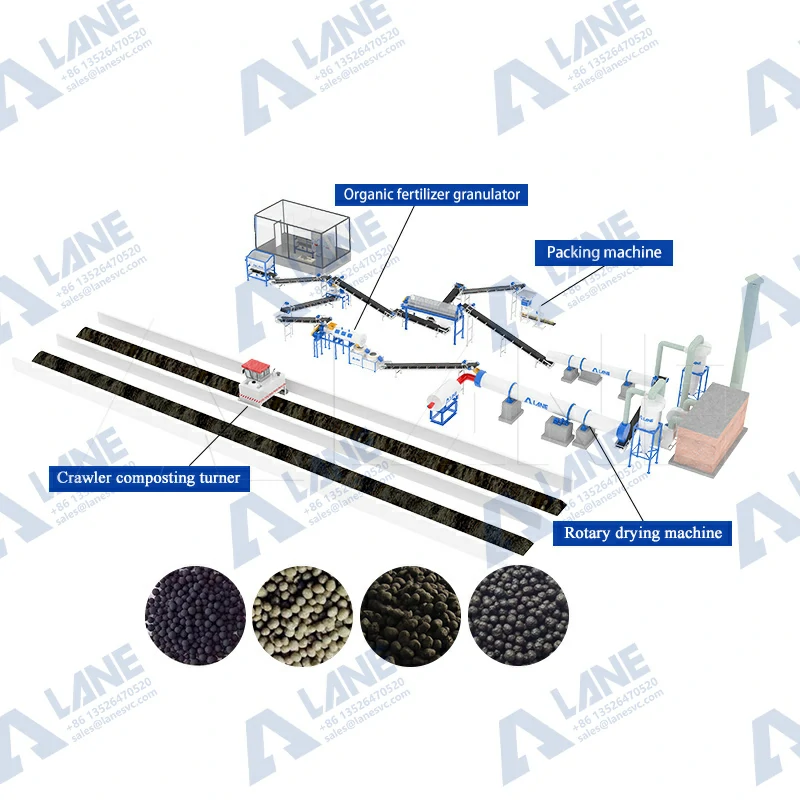With the continuous changes in the fertilizer market, in line with the concept of green development, today’s organic fertilizer production in the market accounted for a growing proportion. Composting and fermentation is a crucial step in organic fertilizer production.
1) Improve soil quality: organic fertilizer can improve the effectiveness of the soil, so that the soil becomes a more fertile ecosystem, effectively improving soil structure and increasing soil fertility. At the same time, organic fertilizer can increase microorganisms, humus and other soil repair, improve soil water retention and aeration.
2) Promote crop growth: Because organic fertilizer contains a large amount of organic matter, nutrient elements and microorganisms, organic fertilizer also has a significant effect on crop growth. It can increase the nutrient content in the soil, promote the absorption of nutrients by plants, provide sufficient nutrients for crop growth, and at the same time improve the quality of crops and promote crop disease resistance.
3) Environmental benefits: as a natural fertilizer, organic fertilizer is harmless and pollution-free. It effectively promotes environmental health, reduces the negative impact of chemical fertilizers and pesticides on the soil and the environment, protects the ecological environment and pursues green and sustainable development.
Principle of composting: Composting is a process that uses microorganisms to break down organic waste into fertilizer. During the composting process, elements such as carbon, nitrogen, phosphorus and potassium in the organic waste are decomposed by the action of microorganisms. The principle of composting mainly includes the following aspects:
Microbial decomposition: microorganisms (including bacteria, fungi, etc.) carry out decomposition in organic waste during the composting process. They do this by decomposing the organic matter and breaking down the carbon, nitrogen and other elements in the organic matter into forms that are more easily absorbed by plants.
Role of Air and Moisture: The composting process requires proper ventilation and humidity to promote the growth and decomposition of microorganisms. The role of air and moisture helps maintain a suitable environment for the composting process and promotes microbial activity.
Effect of temperature: During the composting process, microbial activity generates heat, which raises the temperature of the compost. Appropriate temperature helps to promote the growth and decomposition of microorganisms and accelerate the decomposition rate of organic materials.

Principle of fermentation: Fermentation is a process that utilizes microorganisms to decompose organic matter under anaerobic or low oxygen conditions. During fermentation, microorganisms decompose organic substances and produce some beneficial metabolites, such as organic acids and ammonia nitrogen. The principle of fermentation mainly includes the following aspects:
The role of microorganisms: during the fermentation process, microorganisms (such as lactic acid bacteria, yeast, etc.) will utilize the organic matter for metabolism, producing organic acids, enzymes and other substances. These substances help to increase the nutrient content and utilization of the organic matter.
Anaerobic or low oxygen conditions: The fermentation process usually takes place under anaerobic or low oxygen conditions, which help to promote the growth and metabolic activities of some specific microorganisms, resulting in the production of beneficial metabolites.
Effect of temperature and humidity: Suitable temperature and humidity help to promote the growth and metabolic activities of microorganisms during the fermentation process. The effects of temperature and humidity have a significant impact on the effectiveness of the fermentation process.

The principle of both composting and fermentation is to use the action of microorganisms to convert organic matter into nutrient forms that are more readily absorbed by plants. Through suitable environmental conditions and the action of microorganisms, organic waste can be effectively processed and transformed, thus increasing the nutrient content and utilization rate of organic fertilizers.

LANE Heavy Industry Co., Ltd. offers a wide range of composting and fermentation machinery, such as wheeled compost turners, crawler compost turners, vertical fermentation tank, horizontal fermentation tank, etc., and there are many models of each type of machinery, which can be customized according to the customer’s needs to meet the customer’s needs.
You can enjoy discounts by inquiring now, welcome to contact us!